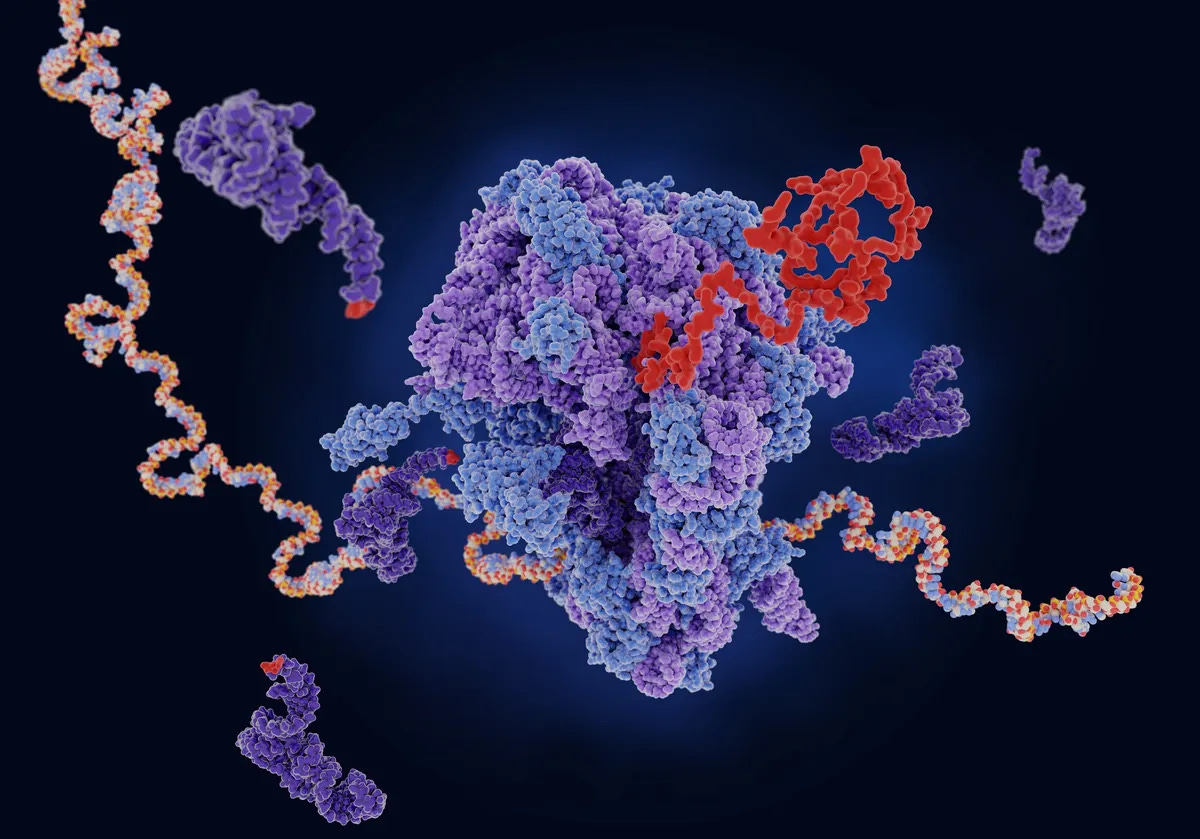Sci-Ed Update 235
We all love to watch babies wiggle around spontaneously. Turns out, they're doing something very important for their development.
Spontaneous baby movements are important for development of coordinated sensorimotor system
Spontaneous, random baby movements aid development of their sensorimotor system, according to new research led by the University of Tokyo. Detailed motion capture of newborns and infants was combined with a musculoskeletal computer model to enable researchers to analyze communication among muscles and sensation across the whole body.
KP: It makes sense that feedback as the baby “tries out” different movements would be needed to learn how to “use the body” in a coordinated way—sort of like playing with the controls of a vehicle to learn how to operate it smoothly.
Read more→ AandP.info/vw3
(martin-dm/E+/Getty Images)
What Happens in The Brain When We Vomit? We May Have Just Found Out
When we eat food that's been contaminated by potentially harmful bacteria, vomiting is a key way the body expels the toxins. To get a closer look at the process from go to throw, a team of researchers tracked a similar process in mice, from their gut to their brain.
The detailed map resulting from the study could have could potentially teach us more about both food poisoning and chemotherapy. The results would suggest that the body produces similar defensive responses to both, although further studies on humans would be required to determine the relevance of the results to our own biology.
Treating gut pain via a Nobel prize-winning receptor
Targeting a receptor responsible for our sense of touch and temperature, which researchers have now found to be present in our colon, could provide a new avenue for treating chronic pain associated with gastrointestinal disorders such as irritable bowel syndrome.
A team examining the colon, led by Professor Hongzhen Hu at Washington University and Professor Nick Spencer at Flinders University, identified the presence of Piezo2, the subject of the 2021 Nobel Prize in Physiology or Medicine, now known to be responsible for sensing light touch on our skin.
Read more→ AandP.info/5v3
Dr. Krista Rompolski joins us for a Journal Club episode discussing a study regarding whether it's best to have a separate anatomy course followed by a physiology course, or to combine anatomy & physiology into an integrated two-semester sequence. We've all considered this question, haven't we? Now we have some data to discuss!
Click the player (if shown), or go to the episode page at…
Ferrets carrying the modern human version of the TKTL1 gene grew extra neurons (green stain) and developed more folds in their brain.ANNELINE PINSON
‘Breakthrough’ finding shows how modern humans grow more brain cells than Neanderthals
Lab experiments pinpoint extra brain growth orchestrated by a single gene change in modern humans
We humans are proud of our big brains, which are responsible for our ability to plan ahead, communicate, and create. Inside our skulls, we pack, on average, 86 billion neurons—up to three times more than those of our primate cousins. For years, researchers have tried to figure out how we manage to develop so many brain cells. Now, they’ve come a step closer: A new study shows a single amino acid change in a metabolic gene helps our brains develop more neurons than other mammals—and more than our extinct cousins, the Neanderthals.
Read more→ AandP.info/blx
© ISTOCK.COM, SELVANEGRA
Specialized Sperm Ribosomes Are Key to Male Fertility in Mice
A previously unknown kind of ribosome is responsible for folding sperm proteins, which decay before fertilization if prepared by other ribosomes.
A newly discovered type of ribosome, which synthesizes and then neatly and securely folds the proteins in sperm to prepare them for their arduous journey, seems to play a key role in male reproductive health, according to a mouse study published yesterday (December 14) in Nature. In the absence of the ribosome identified by the researchers, dubbed RibosomeST, male fertility plummeted, and in vitro tests suggest that’s because the ribosome packages proteins in a special way that enables them to last long enough to achieve fertilization.
Read more→ AandP.info/qo3
iStock by Getty Images: Talaj
You Have Many Ideas — Make Sure You Have Idea Pockets for Them!
In case you aren’t familiar with the term “pockets,” this is the term I use to name the protected places where you keep a space, a reserve, a possibility. We need pockets in many areas of our life (e.g., money, time), but have you considered that you also need pockets of (and for) ideas? We need to make sure to capture ideas as they are occurring, because sometimes when you need a good idea, one doesn’t come. (Darn it!)
At any given moment (some of which are more convenient than others), ideas will come to you. Some of these ideas are major, some are minor, but when you don’t capture the ideas, they whirl around in your head. This not only diverts your attention away from the other work or pleasure on which you need to be focusing but it’s also risky to ignore them because they might not come back! The following are possible means for capturing your ideas as they’re occurring, so you have them for later consideration.
KP: read the full article for some great tips from my friend Meggin McIntosh
Read more→ AandP.info/rv4
CHIP CLARK, SMITHSONIAN INSTITUTION; © NICOLLE FULLER, SAYO STUDIO; © ISTOCK.COM, FEDRELENA, DRAFTER123, MICROSTOCKHUB, ILBUSCA
Our Favorite Genetics Stories of 2022
This year’s stories highlight the expanding versatility of genetic techniques and the increasing utility of such research in all life science fields.
Read more→ AandP.info/g0v
Share this newsletter with your friends and colleagues!
Scientists have long linked inevitable age-related hearing loss to hair cells in the inner ear that become damaged or destroyed over time. Image is in the public domain
When Elders Can’t Hear Words at a Noisy Holiday Gathering, Too Many Brain Cells May Be Firing at Once
Older mice were less capable than younger mice at “turning off” certain actively firing neurons when exposed to ambient noise. The result causes a fuzzy soundscape that makes it difficult for the brain to focus on one type of sound and filter out other surrounding sounds.
KP: in my experience of this phenomenon, it happens a lot at faculty meetings and conferences, too.
Read more→ AandP.info/8v4









